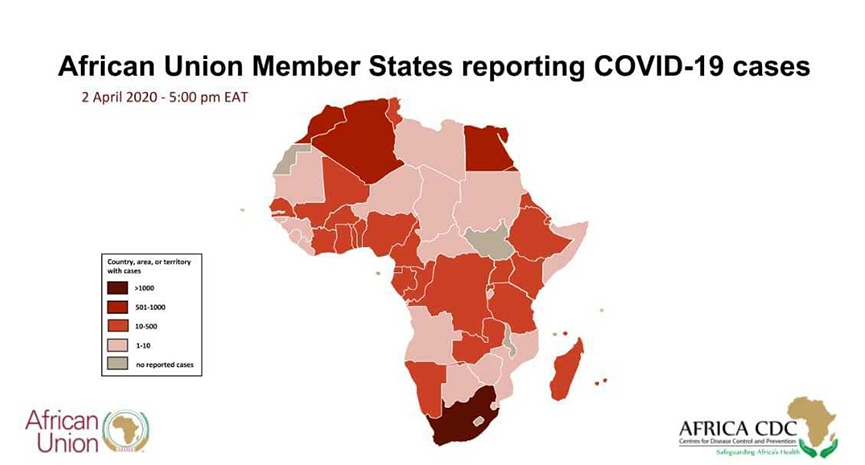WHO in Africa holds first hackathon for Covid-19
World Health Organization (WHO) regional office for Africa hosted its first virtual ‘hackathon’ bringing together 100 leading innovators from across sub-Saharan Africa.

April 03, 2020: In a bid to pioneer creative local solutions to the Covid-19 pandemic and address critical gaps in the regional response, the World Health Organization (WHO) regional office for Africa hosted its first virtual ‘hackathon’ bringing together 100 leading innovators from across sub-Saharan Africa. As Covid-19 spreads rapidly across Africa, raising concerns about the strain on already fragile health systems, it has become clear that “solutions in the response require action beyond the health sector,” said Moredreck Chibi, the WHO regional innovation advisor who facilitated the event. “Innovation can play a critical role in that regard. It should be part of our DNA going forward.”
Hackathon participants were split into eight focus groups, each of which was tasked with developing an innovative and scalable concept aligned with one of the eight pillars of WHO’s current Covid-19 response strategy: coordination; surveillance; risk communication and community engagement; points of entry; laboratory; infection prevention and control; case management and continuity of essential health services; and operational and logistics support. Over the course of the three-day event, groups worked on their respective projects via Zoom and WhatsApp, where they also received regular guidance and mentorship from WHO’s innovation team at WHO Africa regional headquarters in Brazzaville.
On the final day of the event, each group pitched their project to a team of WHO experts. Proposals ranged from mobile-driven self-diagnosis, screening and mapping tools to alternative low-cost methods for producing personal protective equipment (PPE). The three highest-ranking groups will now receive seed funding and further WHO support to help develop and implement their solutions. “A lot of us have independently been working on solutions for Covid-19 on a small scale, but the hackathon gave us the opportunity and the platform to be able to expand on our ideas collectively across our diverse backgrounds,” said Laud Basing, a Ghanaian entrepreneur with a background in microbiology and biomedical engineering whose group came out top of the overall rankings.
Their proposed solution uses a mobile platform that incorporates screening at the community level, mass testing and validation, as well as the mapping of risk levels in different areas in real-time for stakeholders including community health workers to then, tailor their responses accordingly. “The hackathon was a really incredible experience,” said William Wasswa, a Ugandan biomedical engineer whose team was among the top three for their proposed x-ray based self-screening platform, which aims to counter a shortage of testing kits in many African countries. “WHO must be credited for bringing so many different African innovators together,” he added.
Understanding how the Covid-19 pandemic will continue to evolve in Africa is still a work in progress, and the response is still being adapted to the African context. Solidarity and the sharing of ideas across the region will be an important part of that process. With that in mind, Chibi plans to continue developing WHO’s new hackathon model in the coming weeks. “Through this new platform, we can help people to see the relevance of WHO in providing practical solutions, so I think it's game-changing in the way we are approaching things and our regional director Dr Moeti is very willing to support wherever necessary to make sure that we sustain some of these initiatives,” he said. “African countries can set an example in terms of innovation and solutions that are tailored to limited-resource settings.”


